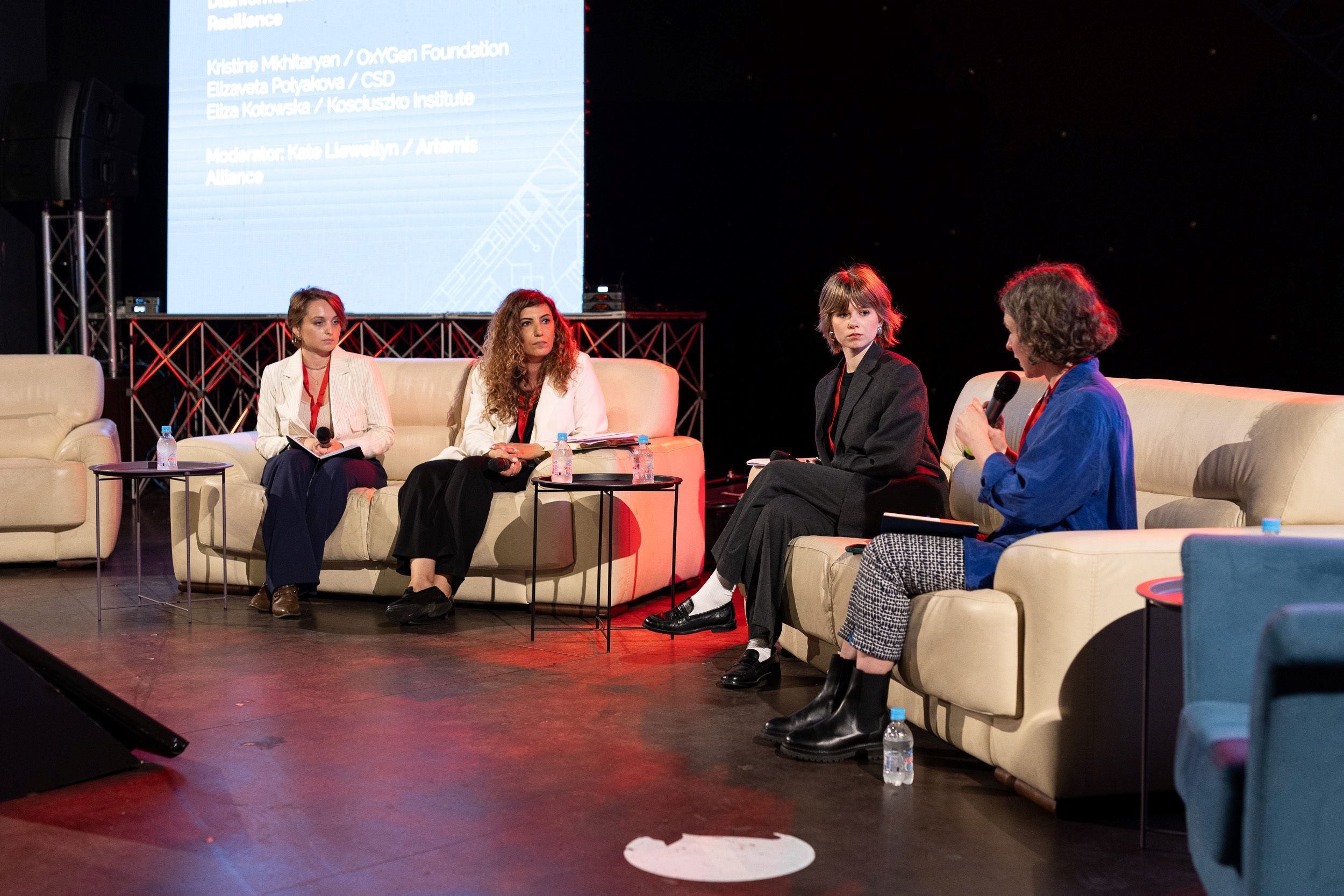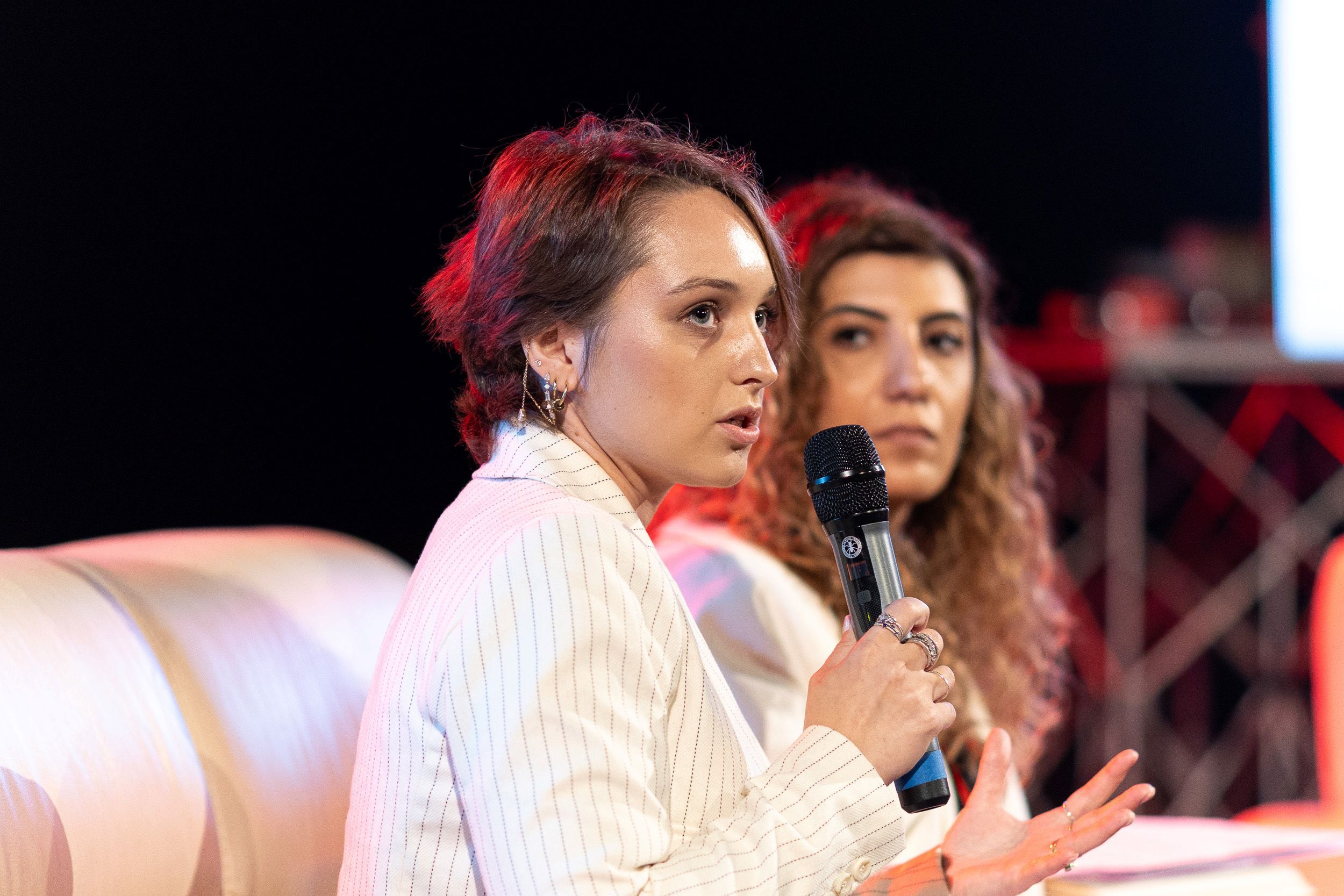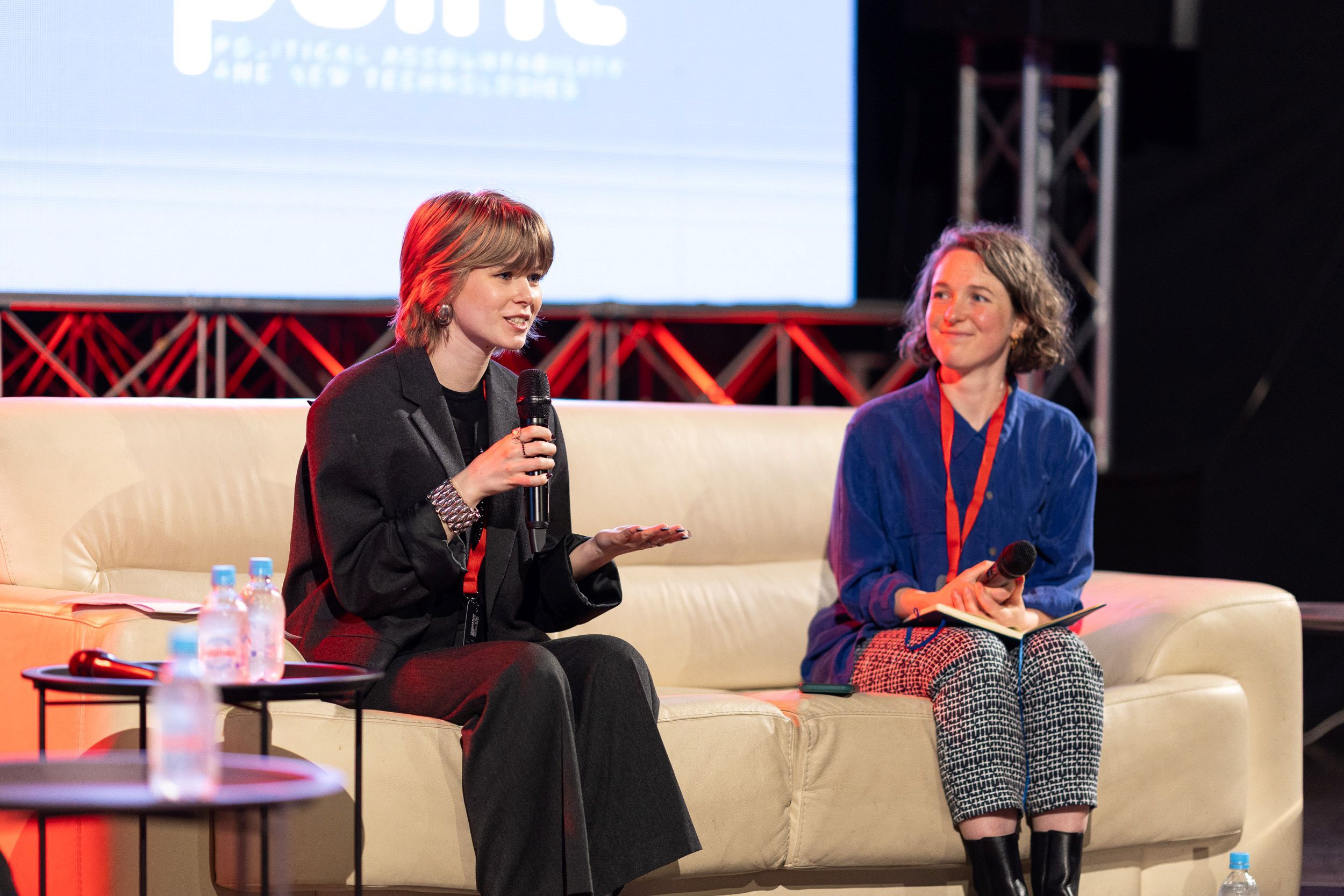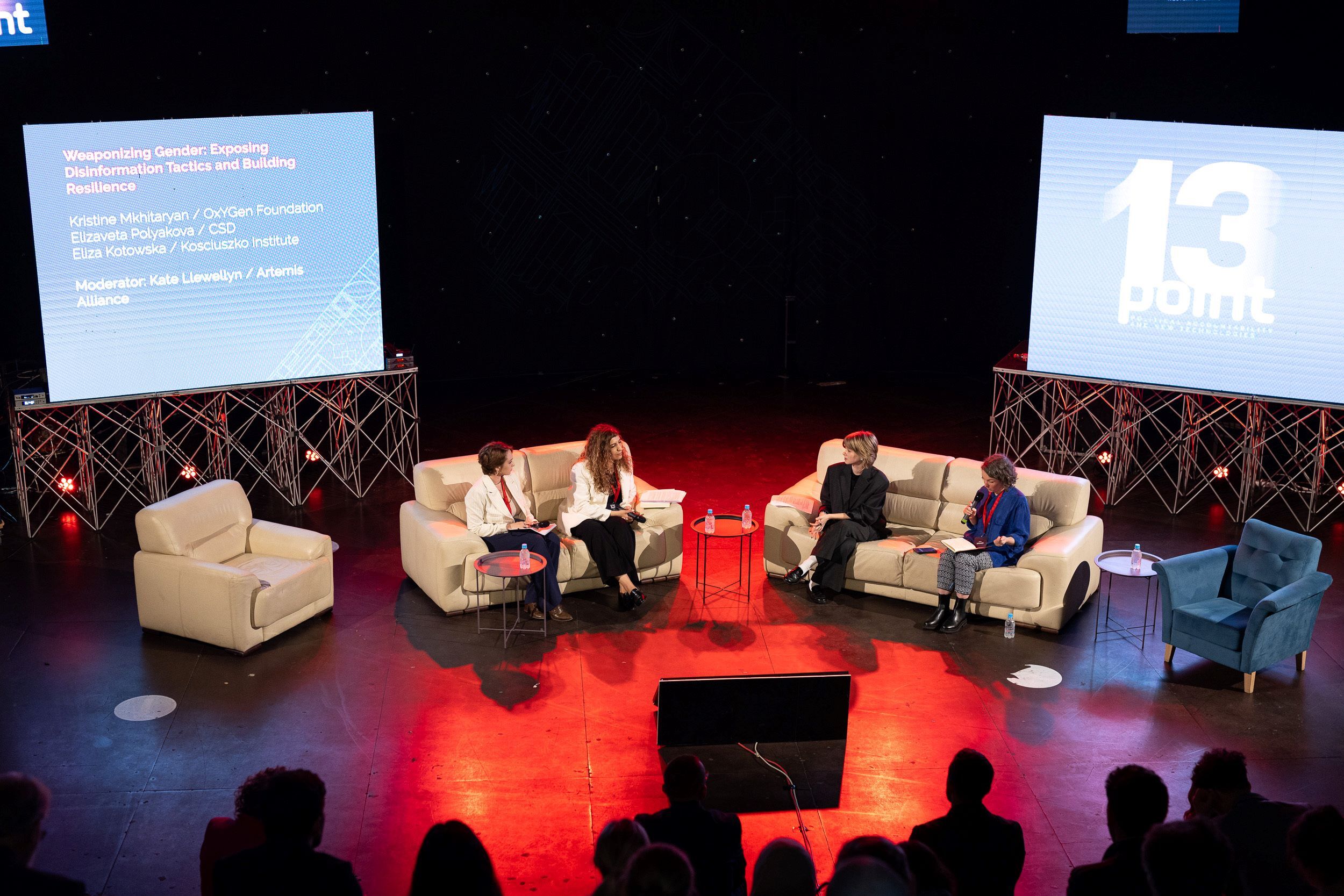Weaponizing Gender: Exposing Disinformation Tactics and Building Resilience
In an era where disinformation campaigns are increasingly sophisticated, one of the most insidious and overlooked threats is the weaponization of gender and identity. At a recent panel moderated by Kate Llewellyn, Project Director of the Artemis Alliance, experts from Armenia, Bulgaria, and Poland shed light on how gender and identity disinformation (GID) is being used to undermine democracy, fuel polarization, and erode social cohesion.

Gender and Identity Disinformation (GID) deliberately spreads false information targeting gender and sexual orientation, often aimed at discrediting or silencing women, LGBTQ+ individuals, and activists. As moderator Kate Llewellyn explained: “GID exploits deeply held social norms around gender and sexuality, masking political motives in familiar ideological narratives.” She additionally spoke on the misuse of new technologies, stating: “Both foreign and domestic actors are amplifying these divisive narratives, and AI is supercharging both the scale and the effectiveness of gender and identity disinformation.”
A striking example comes from Armenia, where the ratification of the Istanbul Convention, a treaty aimed at preventing domestic violence, has been stalled since 2019 due to disinformation campaigns.
Kristine Mkhitaryan, Gender Program Manager at OxYGen Foundation, states that false narratives shape the view on the convention, most of them misinforming the public with false narratives that it would: “Legalize third-gender recognition and promote same-sex marriages, harming traditional family values.” These claims, amplified by local media and influencers, have created lasting polarization and hindered progress on gender equality.

The spekars stated that harm caused by GID operates at individual, societal and national level. Women and LGBTQ+ individuals face psychological trauma, online harassment, and even physical violence. Eliza Kotowska, a senior analyst at Poland’s Kosciuszko Institute, shared alarming examples from Polish elections, where female candidates were targeted with AI-generated deepfakes. “One fabricated image showed a woman inappropriately dressed in Parliament, with comments claiming this proved politics is a male career.” Such attacks discourage women from entering public life.
Furhtermore, GID fuels division and weakens trust in institutions. Such an example comes from Bulgaria. Elizaveta Polyakova, an analyst at the Center for the Study of Democracy, highlighted how pro-Kremlin actors securitize gender issues, framing them as threats to national identity.
“Anti-gender campaigns portray LGBTQ+ rights as a ‘foreign import,’ eroding support for democratic values,” she stated.

When it comes to national security, by exploiting social fractures, GID creates vulnerabilities that malign actors, such as Russia, leverage to destabilize democracies. Polyakova pointed to Bulgaria’s recent ban on “LGBTQ propaganda” in schools, a law pushed by far-right parties with ties to Russian influence networks. She pointed: “This isn’t just about rights—it’s about dismantling democratic resilience.”
Although many have faced severe challenges, the panelists shared successful countermeasures, like challenging social norms. In Armenia, OxYGen Foundation’s awareness campaign reached 3.5 million people, increasing support for women in diplomacy by 12%. “We didn’t just counter disinformation – we reinforced values like women’s legitimacy in leadership,” Mkhitaryan said. Kotowska pointed to the need for gender – sensitive media training, as “a lot of defamation campaigns (are) directed especially against LGBTQ individuals and women in politics, they publish sensitive information and this content is not being taken down.”
Polyakova called for stricter sanctions on disinformation outlets, claiming that “We must stop treating gender as a ‘toxic’ issue and confront it head-on.” The panelists also spoke about corporate accountability, when Mkhitaryan highlighted how businesses unintentionally fund GID by advertising on platforms that spread it. “We’re working with companies to promote ethical media funding,” she explained.

Questions about regional disinformation, flagging of media, free speech and hateful content rose during the O&A session. The panelists stated that all regions are affected by “cross-border” spread of disinformation, which is hard to combat. When it comes to flagging in Bulgaria, instruments used for it are not perfect, therefore it takes a lot of work to flag content that is hateful or calls for gender discrimination, but in such a way platforms can be held responsible for fueling hateful content.
When it comes to hate speech in Poland, journalists are discriminated against for reporting or highligting controversial topics of gender and identity, and are usually protected by CSO. Due to threats, most journalists refuse to speak on important issues.
A key takeaway from the panel is that GID is not a niche issue, but a systemic threat requiring coordinated action. As Llewellyn emphasized: “This is about protecting democracy itself.” Whether through education, policy, or grassroots campaigns, the fight against gender disinformation must be integrated into broader efforts to safeguard democratic values.
The stakes couldn’t be higher. As Kotowska starkly put it: “If we don’t fight GID now, these narratives will keep recycling – and the damage will only grow.”
Author: Ivana Vučetić